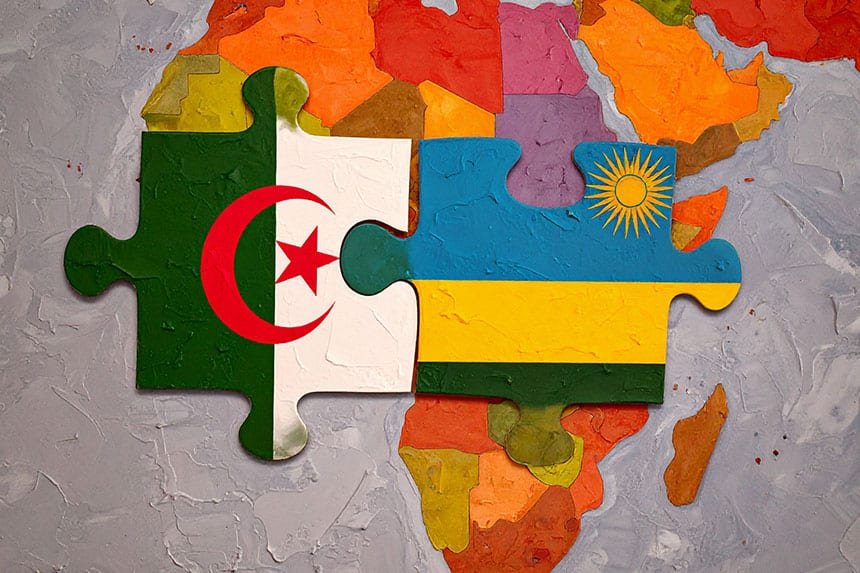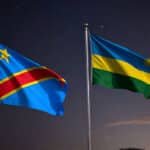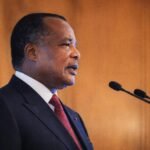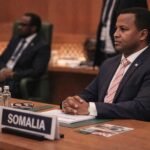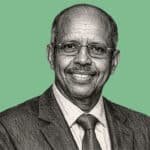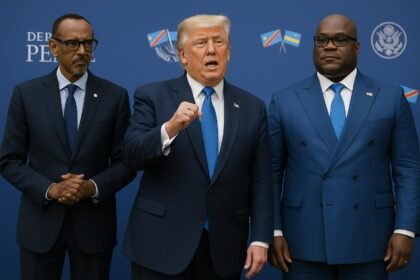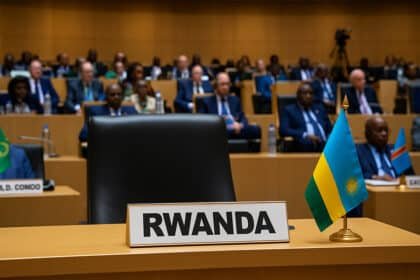A meeting of histories and ambitions
When President Kagame stepped onto the marble forecourt of El Mouradia Palace on 3 June 2025, he invoked the “shared anticolonial spirit” that binds Kigali and Algiers. Within hours he and President Abdelmadjid Tebboune witnessed the signing of twelve agreements covering aviation, higher education, pharmaceuticals, police cooperation and reciprocal visa waivers for officials. In a joint communiqué the leaders portrayed the package as the architecture of “an Africa confident in its own agency”.
Economic diversification meets digital leapfrogging
Algeria’s effort to pivot away from hydrocarbon dependency underpins its overture to Rwanda. The World Bank’s Spring 2025 update credits non-oil GDP growth of 4.8 per cent, yet warns that productivity gains remain uneven. Kigali, in turn, offers a tested playbook for tech-led growth. The agreement that grants thirty Rwandan students places at Algeria’s National School of Artificial Intelligence aligns with Rwanda’s Vision 2050 digital targets while satisfying Algiers’ quest for skills transfers in high-value sectors.
Both capitals framed the new air-services accord as an artery for AfCFTA-enabled trade rather than a mere commercial route. Direct flights are expected to reduce freight times between North and East Africa from fifteen hours to under eight, a logistical gain that Algerian exporters of fertilisers and Rwandan shippers of chilled horticultural produce have lobbied for since 2023.
Converging doctrines on conflict resolution
In political theatre that resonated beyond bilateralism, Kagame and Tebboune laid a wreath at the Martyrs’ Memorial before issuing an identical call for an immediate cease-fire in Gaza and for the resurrection of the two-state framework. The joint statement also reaffirmed the right of the Sahrawi people to self-determination, a position that prompted Moroccan media to denounce “Algerian fabrication” of Kigali’s stance. Rwandan diplomats quietly dismiss the charge, noting that Kigali has maintained a consistent reading of UN Resolution 690 since 1991.
Security cooperation is not new—senior officers from both armies exchanged visits in 2024—but the freshly minted police-cooperation accord signals a willingness to pool expertise on counter-terrorism and cybercrime. Analysts at the Institute for Security Studies argue that Algeria’s battle-hardened counter-insurgency doctrine complements Rwanda’s rapid-deployment experience in Mozambique’s Cabo Delgado, creating an emergent axis of “African solutions to African threats”.
Geopolitical implications and measured expectations
The speed and breadth of the agreements fuel speculation that Algeria seeks an East-African gateway to balance Morocco’s ascendancy in West Africa, while Rwanda prizes North-African support to cushion its fraught relations with Kinshasa. Yet mutual benefit rather than zero-sum rivalry dominates official rhetoric. A senior Algerian diplomat, speaking on background, described the partnership as “non-exclusive hedging” that keeps channels open to Brussels, Beijing and Washington.
However, seasoned observers caution against premature triumphalism. Prior memoranda signed by Algeria with Ethiopia in 2022 and by Rwanda with Ghana in 2023 progressed slowly once media attention faded. Implementation capacity—not political intent—will determine whether the current euphoria translates into sustained trade volumes and joint ventures. The newly announced bi-national follow-up committee, co-chaired by the two foreign ministers and slated to convene quarterly, is designed to mitigate that risk.
From symbolism to substance
The Algiers summit captures a moment when two ideologically distinct yet pragmatically aligned states test a model of south-south cooperation that fuses economic diversification, digital ambition and norms-based diplomacy. Its success will be measured less by the signing ceremony’s pageantry than by the reliability of new air corridors, the employability of AI graduates and the quiet influence the duo may wield in mediating continental disputes. For diplomats across Africa and partners further afield, Algeria and Rwanda’s overture serves as both template and barometer of an Africa keen to author its own strategic narrative.
